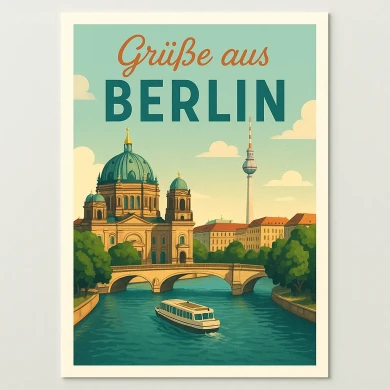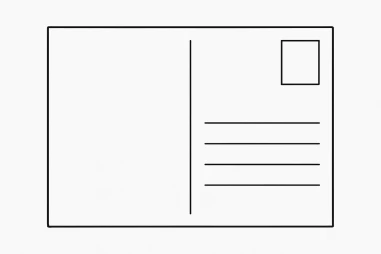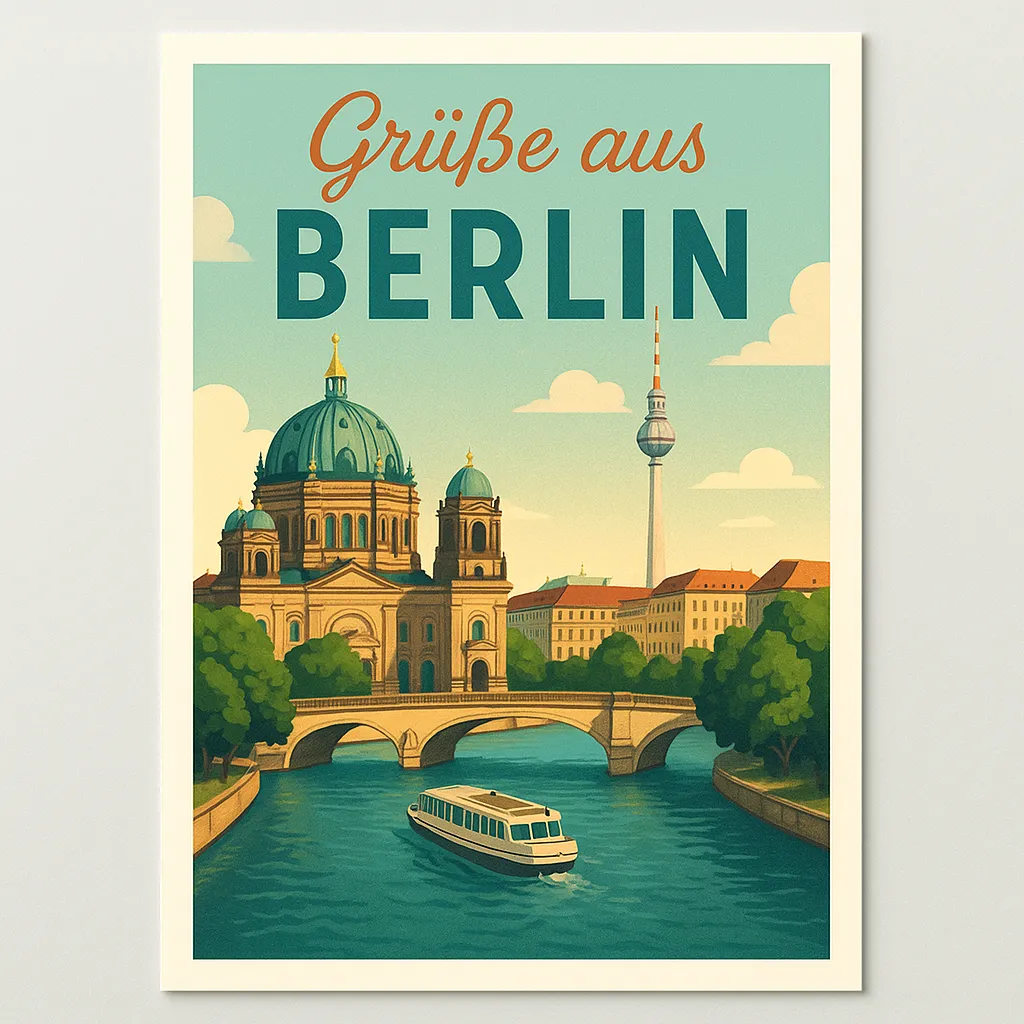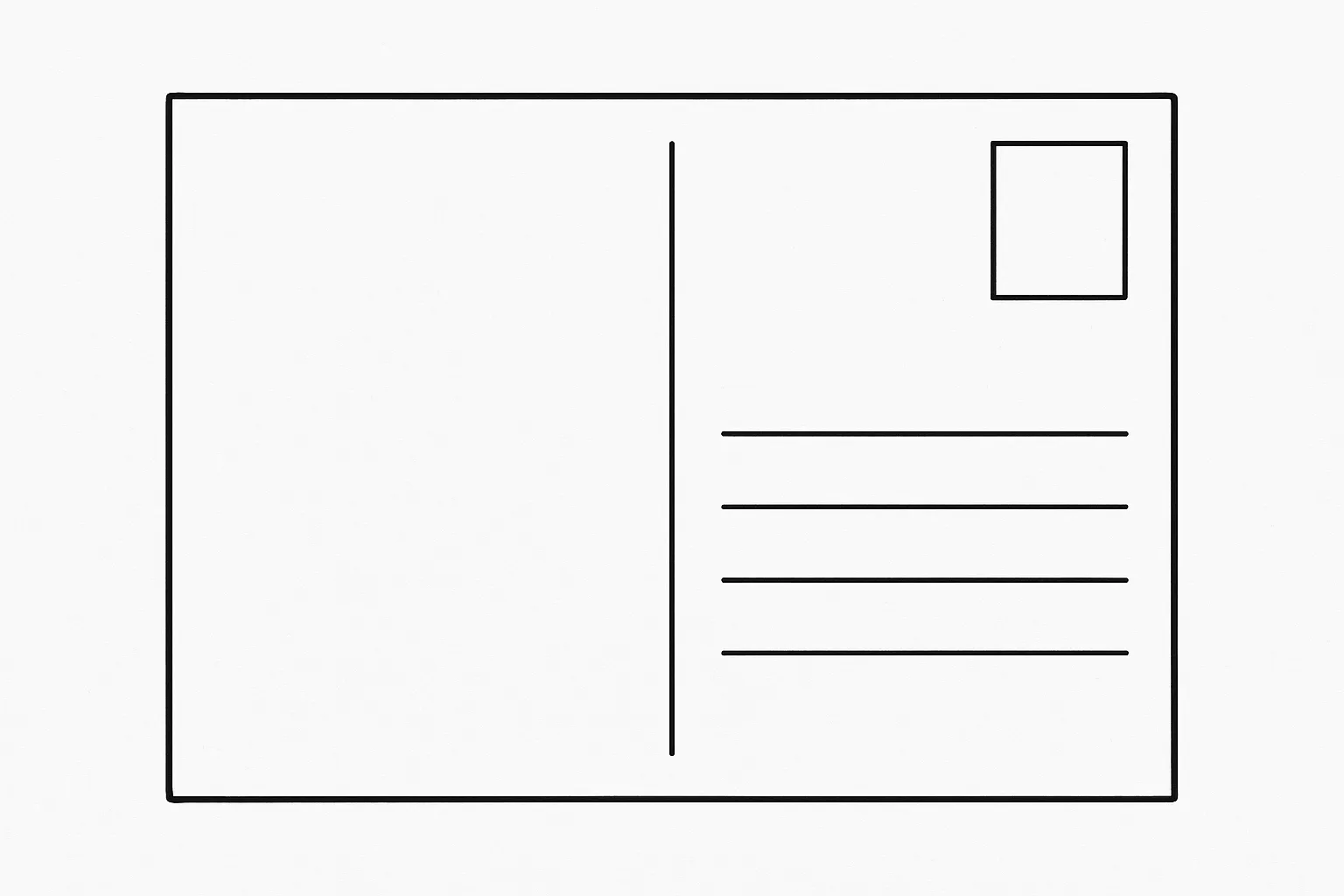
Postcard Size Format: Dimensions, Back Side & Printing Instructions
When sending or printing postcards, accurate information on formats, dimensions in cm, and back side layout options is crucial. This page provides all the relevant nstructions on standard postcard sizes along with tips on variants, printing, and addressing.

Postcard Dimensions in cm - Standard Sizes at a Glance
Postcards are often sent in DIN A6 format, but there are various dimensions depending on their purpose. The following overview shows common postcard sizes in centimeters as used in printing and mailing.
Overview of Common Postcard Sizes and Formats Compared
Postcards are available in various sizes, with certain formats having become especially popular for mailing or as promotional materials used indoors. In addition to the classic DIN A6 format, larger or square versions are also common—for example, for creative campaigns, invitations, or eye-catching inserts. The following overview presents typical postcard sizes with their dimensions in centimeters and common areas of use. This makes it easier to align format selection and design with the intended purpose right from the start.
| Label | Dimensions in cm (W x H) | DIN-Format | Typical Use |
|---|---|---|---|
| Classic Postcard | 10.5 × 14.8 cm | DIN A6 | Standard mail, holiday cards |
| Maxi Card | 12.0 × 23.5 cm | – | Advertising mail, direct mailings |
| Square Card | 14.8 × 14.8 cm | – | Invitations, greeting cards |
| Compact Card | 10.5 × 21.0 cm | DIN Lang | Invitations, campaigns, promotions |
| Mini Postcard | 9.0 × 14.0 cm | – | Inserts, giveaways |
| Custom Format | Bis 12.5 × 23.5 cm* | – | Promotional cards, creative special formats |

Designing the Back of a Postcard –
Tips for Text, Address and Layout
The back of a postcard serves several purposes: Alongside the space for the address, there should be room for personal messages, advertising content or greetings.
To ensure proper printing and smooth mailing, certain layout guidelines must be observed.
Printing Postcards - Tips on Material, Format and Implementation
When printing postcards, more than just appearance matters. To ensure they can be mailed, the format, material, and processing must be well coordinated. Especially for advertising postcards or special occasions, it’s worth investing in high-quality cardstock and ensuring the back side is easy to write on.
Suitable Paper Types for Postcard Printing
Depending on the intended impact and application, different materials are available. The following overview shows common paper types used for postcard printing:
| Paper Type | Grammage | Properties |
|---|---|---|
| Chromoboard | 280–350 gsm | Front side coated glossy or matte for vibrant colors; uncoated reverse side, easy to write on |
| Art Paper | 250–400 gsm | Coated on both sides; high color brilliance; less suitable for writing |
| Uncoated Paper | 250–300 gsm | Uncoated; natural feel; good for writing |
| Recycled Paper | 250–300 gsm | Eco-friendly; matte surface; easy to write on |
Designing the Back of a Postcard - Space for Text, Address and Layout
The back of a postcard combines functionality with creative freedom. It must provide space for a personal message and the address - while complying with Deutsche Post specifications.
Typical Layout of a Postcard Back Side
| Area | Description |
|---|---|
| Left Side | For text, greetings, personal messages or company logo |
| Upper Right Corner | Reserved area for stamp or franking mark (min. 4 × 2 cm) |
| Middle Right Area | Address field with five lines (name, street, ZIP, city) |
| Bottom Right Corner | Must remain free of design elements for automated sorting |
The back is traditionally divided down the middle: write on the left, address on the right. The dividing line should be approx. 7 cm from the left edge. Important info should not be placed too close to the edge. A safety margin of 10 mm is recommended.
Our experts are happy to assist you with the layout and design of your postcard. Whether it's the text, image selection, or the correct placement of addresses and design elements – we’ll make sure everything is professionally aligned for optimal print results.


